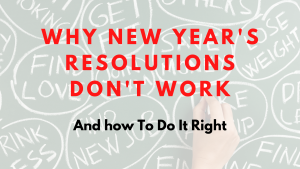

“But, if you try sometime, you might find you get what you need.” -Mick Jagger and Keith Richards.
I never thought I’d quote Keith Richards on my blog. Not exactly the poster child for good health. But the Stones were onto something really big here. I listened to this song the other day, and it made me think about the difference between what we want and what we need in relation to our food choices.
The dynamic here is complicated, and knowing the difference between the two is not a small thing.
What does wanting to eat something means? We can assume that often, this is what you crave at a certain moment. This is the childish, impulsive side of your personality saying, “I want that pizza!” It’s the child in you that’s constantly looking for immediate gratification.
What you need, on the other hand, is what the system of your body and mind really requires at a given time to function better, to improve, and to heal.
What’s amazing is how contrasted the two can be. Lets take bitter foods, for example: kale and dandelion. These foods have very high nutrient-density, and they can provide you with many things you actually need. How often though, do you hear about someone who is craving a green shake?
Many times, not always, the food we want are very different from the nutrient-dense types. We crave foods with very low nutritional value, like candies or highly-processed foods. This tendency to crave these foods is not our fault. Looking back at our evolution, we can track down and understand these kinds of cravings, especially for sweet foods.
During millions of years of evolution, our bodies and minds were wired to crave these foods simply because, until recently, these foods were scarce, high claloric foods. From a survival point of view they were a nutritional treasure. In our times, there is an endless availability of these foods. This over-abundance creates the metabolic dysfunctions we see today manifested in the familiar killers in our society: diabetes, heart disease, and obesity. These can be the end results of following your cravings and impulses for years.
A few months ago, I was visiting Tel Aviv, which is famous for its coffee and pastry shops. I found myself developing a daily ritual of eating some kind of sweet treat with my coffee. After returning home, I found myself craving something sweet after every meal. In a 2 week visit, I developed (to a degree) a sugar addiction!
The scary thing here is how sophisticated and manipulative your mind can be in convincing you that this is what you really need. Your mind will create all kinds of excuses, stories, and reasons why you have to have it. If you do, you’ll be rewarded and comforted. This is a dynamic of addiction. We know it’s bad for us, yet we surrender to the impulse and let the child in us take control. Later come guilt, shame and low self esteem that lead to more impulsive eating behavior and here we are, stuck in a vicious cycle.
Growth with Observation
I want to offer a way to deal with this, that is a little different than the usual bout of guilt and self-criticism. Instead, I suggest self-awareness and observation.
I heard a story of a woman at a Buddhist monastery who noticed she had developed a dependency on green tea. Green tea has a limited amount of caffeine and many health benefits, so addiction to it doesn’t look like a problem. Yet, in the context of a Buddhist practice, even an addiction to green tea is an obstacle to your freedom.
When she asked her master how to deal with this desire, he told her this: next time this sensation arises in you, prepare a tea pot. When it’s ready, just watch it without drinking any of it. Instead, she was to meditate, watch the pot, and reflect on what happens. And so she did. Every day she prepared the tea and simply watched the steaming pot. She observed and noticed the sensations in her body while watching the pot. She observed her mind and the thoughts she was having while staring at the pot. After a few days of this weird ritual, she noticed that her desire for the tea was starting to dissipate; it eventually disappeared.
The start of improvement and growth is always through self-awareness—the ability to observe our difficulties and challenges and then frame them. To give them a name. Next, we must see these things for what they really are without negativity, criticism, and guilt. Taking responsibility and acting upon this awareness is obviously crucial, but action that is based in this clean awareness—free from judgment and negativity—will create a real and sustainable improvement.
When What You Want is What You Need
Yes! The two can and should merge! When you start cleaning your diet and sustaining your body based on what it needs, and less according to impulses and cravings, the difference between the two becomes blurry. When you break cycles of addictions, you clear out the channel through which your body-mind sends you the message of what you really need—what nourishes you on a holistic and deep level.
How does it feel in reality? You can actually feel like you’re craving a green shake. You literally crave the bitterness that indicates nutrient richness. Or a cup of bone broth. On the other hand, the thought of a commercial burger or candy does nothing to you. Since these “foods” don’t serve you—and actually harm you—you don’t consider them foods anymore. They are pushed away, and rightly so, from the range of possibilities.
We live in a world where it’s very hard to eat intuitively while also eating according to your true needs. The endless availability of any kind of food creates constant distraction and confusion. Add to that the constant bombardment of food commercials and interest-driven information, and it seems almost impossible. Almost. It’s still possible. Observation, as I said, is the first step. Just like any other change for improvement, it takes practice. What are the things we can do and what does this practice look like?
- Make a clear definition of your meals for a given day. It doesn’t matter if you eat 2, 3, or 4 meals a day. Define the time for a meal and create the space and time for it. Planning your eating times will decrease the chance for impulsive eating.
- When you make your food choices, ask yourself, “How does this food serve me? How is it benefiting me and the rest of my day?”
- When you feel like eating a certain food, or before you’re starting your meal, pause and observe – What is going on?
- Pay attention to emotions that are rising before or during eating. Do you experience anger or sadness? Are you stressed? We tend to be more impulsive and less mature when we eat in these states.
- Invest in your food. Whether it is time for cooking or money, invest in food that nourishes your body and also provides pleasure. Please, don’t make the assumption that what’s good for you can’t be pleasurable and fun to eat, because that can’t be further from the truth.
- Compassion – if you fail, and sometimes you will, be compassionate about yourself. Being compassionate doesn’t mean being weak and to slack. It means being forgiving at times but also learning from failure and being willing confront the challenges on the way.
You just have to try sometime..



